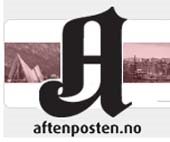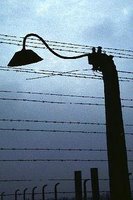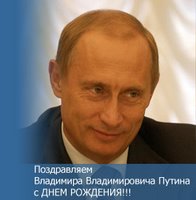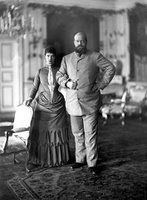 Why is it that a WW II-monument repeatedly sparks bilateral crises between Estonia and Russia? This question has, in recent days, gained new relevance after strong Russian reactions against the Estonian parliament's decision to remove the so called Bronze Soldier (Pronkssõdur) soviet war monument from central Tallinn. The reason is simple: The Bronze Soldier has become a proxy for the conflict between Estonian and Russian interests in Estonia before the 4 March parliamentary elections. The Estonians thus vage a battle by bronze proxy.
Why is it that a WW II-monument repeatedly sparks bilateral crises between Estonia and Russia? This question has, in recent days, gained new relevance after strong Russian reactions against the Estonian parliament's decision to remove the so called Bronze Soldier (Pronkssõdur) soviet war monument from central Tallinn. The reason is simple: The Bronze Soldier has become a proxy for the conflict between Estonian and Russian interests in Estonia before the 4 March parliamentary elections. The Estonians thus vage a battle by bronze proxy.It is becoming increasingly clear that Edgar Savisaar's Centre Party (Keskerakond), will stand as victors on election day, ousting the coalition government led by Prime Minister Andrus Ansip's Reform Party (Reformierakond). Such a result risks toppling the delicate balance between western financial interests, dominating the Estonian banking system, and Russian interests controlling the lucrative transit trade, with far-reaching consequences for domestic and foreign policy.
Economic interest has been one of the main driving-forces in Estonian politics since the country regained its independence in 1991. A division of labour was developed roughly between two
 opposing groupings - the Russians controlling transit trade and backed by Moscow, and the Estonians controlling the financial and banking sector and backed by western - mainly Scandinavian - interests. This is reflected also in politics. Thus, Savisaars Centre Party has gradually become Moscow's agent, with heavy economic backing from Russia, to the point that the party actually has entered into union with Russian power party United Russia (Единая Россия). Savisaar's main opponent, the Reform Party, is to the contrary linked to finance and banking dominated by western business interests. A final peculiar twist to the matter is that these two main contenders for political power in Estonia, in fact form the current coalition government, together with the People's Union (Rahvaliit).
opposing groupings - the Russians controlling transit trade and backed by Moscow, and the Estonians controlling the financial and banking sector and backed by western - mainly Scandinavian - interests. This is reflected also in politics. Thus, Savisaars Centre Party has gradually become Moscow's agent, with heavy economic backing from Russia, to the point that the party actually has entered into union with Russian power party United Russia (Единая Россия). Savisaar's main opponent, the Reform Party, is to the contrary linked to finance and banking dominated by western business interests. A final peculiar twist to the matter is that these two main contenders for political power in Estonia, in fact form the current coalition government, together with the People's Union (Rahvaliit).It is obvious that the the Bronze Soldier crisis this time is a desperate attempt
 by the Reform Party, facing potential defeat, to gain votes by shedding light over the close relations between the Centre Party and Russia. So, who are the major players in Moscow's relations with Estonia? On the Russian side, two names stand out as safeguarding these interests, namely Gleb Pavlovsky, one of Russia's foremost "political technologists," and Igor Levitin, Russia's Minister of Transportation. Pavlovsky gained wider international attention in 2005, due to allegations of involvement in the dioxin poisoning of Ukrainian president-to-be Victor Yushchenko. As for Levitin, Savisaar the other year unsuccesfully tried to grant him Estonian citizenship due to his great services to the country.
by the Reform Party, facing potential defeat, to gain votes by shedding light over the close relations between the Centre Party and Russia. So, who are the major players in Moscow's relations with Estonia? On the Russian side, two names stand out as safeguarding these interests, namely Gleb Pavlovsky, one of Russia's foremost "political technologists," and Igor Levitin, Russia's Minister of Transportation. Pavlovsky gained wider international attention in 2005, due to allegations of involvement in the dioxin poisoning of Ukrainian president-to-be Victor Yushchenko. As for Levitin, Savisaar the other year unsuccesfully tried to grant him Estonian citizenship due to his great services to the country.Then, what is actually at stake for the upcoming elections? Estonia is currently struggling with an overinflated rate of public lending - a financial bubble that could easily burst in face of any radical change of power in Tallinn. If Savisaar's Centre Party would win on 4 March, this might well be the spark to set off a major financial crisis in Estonian economy. As the Reform Party relies on the finance and banking sectors that constitute the lenders, such development would be catastrophic to the party, and potentially topple the fragile balance of power within Estonian politics and society. Moreover, it would hit hard on the western investors, forming Estonia's link to European economy. Therefore, the Reformists now are desperate to undermine the Russian interests forming the power base for Savisaar's Centrists. Thus, the Bronze Soldier crisis must be seen as an attempt to provoke sanctions from Russia, which would hit the very transit trade that forms the basis of Savisaar's Russian backing.
As the Estonian parliament (Riigikogu) this morning decided to move the Bronze Soldier monument, the country's president, Toomas Hendrik Ilves, was quick to declare that he would not sign such legislation, claiming it to be in breach of the constitution. In this context, one must ask whether it really was necessary for the parliament to pass a law on the removal of the Bronze Soldier. If this really was the intention of the Reform Party, could it not have been easier accomplished by a simple government decision? From this perspective, it is quite obvious that the Reformist ulterior motive was to provoke a crisis with Russia that would benefit the party for the upcoming elections.
So, what have been the reactions in Moscow? Russian Foreign Minister, Sergey Lavrov, was quick to characterise the decision as a "grave mistake" and as a "blasphemous act." Also, the chairman of the Russian Duma's foreign relations committee said that the decision would have catastrophic consequences for Russian-Estonian relations, especially trade and economy, thus hinting at exactly the effect the Reformist Party wanted to achieve. However, Estonia's ambassador to Moscow, Marina Kaljurand, was quick to point out that Russia would be unlikely to impose bilateral sanctions on Estonia, not wanting to risk a "trade war" with the European Union. What will actually come out of this is yet to be seen, but it seems that Russian politicians would be shrewd enough to call the bluff. Still, Russian-Estonian relations have been shaky for long, as previously reported, so it is difficult to say what will come out of Moscow this time.
Here one should instead direct more attention to an overseen foreign policy factor in the context of Russian-Estonian relations, namely the projected Russian gas pipeline through the Baltic Sea.
 This crucial project for Russia is meeting increasing opposition among Baltic Sea states, and currently public opinion also in Sweden is turning against letting the pipeline run through its territorial waters. Would Sweden and other Baltic states turn down the project, with a Centrist government ruling Estonia, one scenario is that Russia might turn its frustration towards Tallinn, possibly giving massive support to Savisaar in order to gain a permanent influence over EU-member Estonia. This would create a very difficult terrain for the EU and Estonia's neighbours to manouevre, not to speak of what challenges it would pose to president Ilves and the Estonian political system.
This crucial project for Russia is meeting increasing opposition among Baltic Sea states, and currently public opinion also in Sweden is turning against letting the pipeline run through its territorial waters. Would Sweden and other Baltic states turn down the project, with a Centrist government ruling Estonia, one scenario is that Russia might turn its frustration towards Tallinn, possibly giving massive support to Savisaar in order to gain a permanent influence over EU-member Estonia. This would create a very difficult terrain for the EU and Estonia's neighbours to manouevre, not to speak of what challenges it would pose to president Ilves and the Estonian political system.Finally, is there any solution in sight for the issue of the Bronze Soldier monument? As for its removal, Estonia probably lost its chance back in 1991. However, doing so spurred an idea of expanding the monument to hold also statues of Estonian, German, as well as allied soldiers of WW II, along with various paraphernalia. This idea was never realised, paradoxically due to lack of metal for the statues. In the early 1990s, Estonia was a major exporter of metal, despite its evident lack of this type of natural resources. Mainly Russian business interests made fortunes by exporting whatever metal scrap they could lay their hands on, thus forming the mighty Russian economic interests that now dominate the transit trade. So, what then made Russian fortunes - the metal that might have expanded the Bronze Soldier monument into a unifying symbol for Russians and Estonians alike - now comes back to haunt the transit profiteers by a constant threat of sanctions to their trade. Had there been metal then, this explosive matter might have been defused at an early stage. Then, of course, Estonians and Russians would probably have found some other symbol to quarrel over.



























